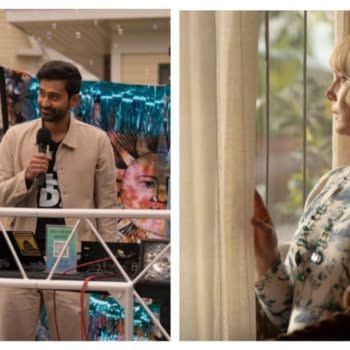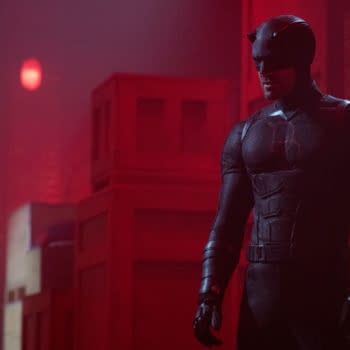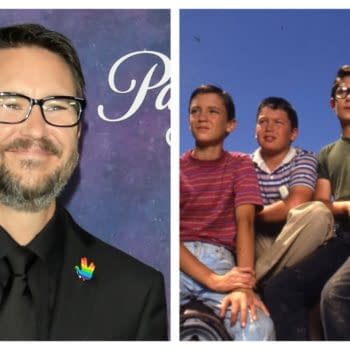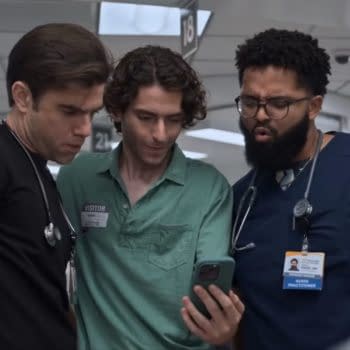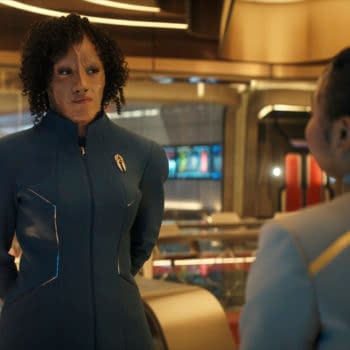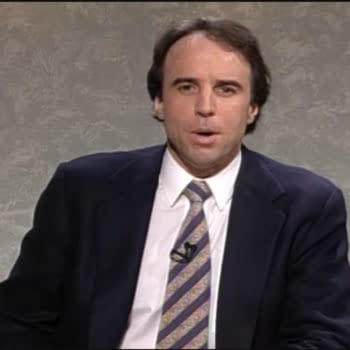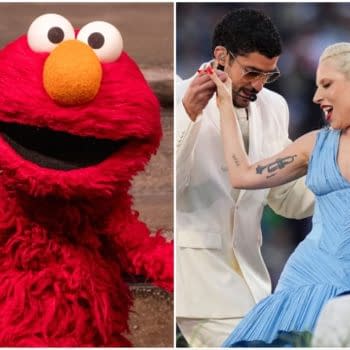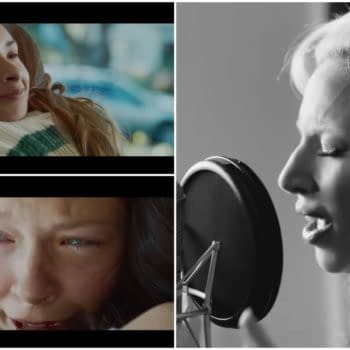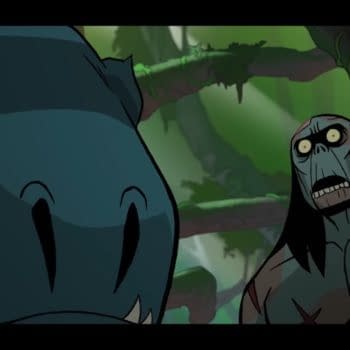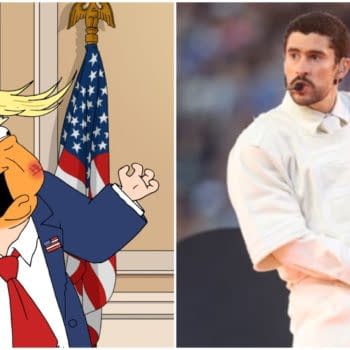Posted in: Adult Swim, Anime, Rick and Morty, TV | Tagged: Adult Swim, dan harmon, exclusive, interview, Joseph Chou, rick and morty, rick and morty: the anime, Takeshi Sano
Rick and Morty: The Anime Director & EP on Series Approach, Autonomy
Rick and Morty: The Anime director Takashi Sano and EP Joseph Chou spoke with us about their creative take on the Adult Swim series.
It can't be understated how much global influence the Adult Swim animated series Rick and Morty since its creation in 2013. As the series is now showrun by Scott Marder and growing beyond creators Dan Harmon and Justin Roiland (who was fired in season seven under controversy), a second spinoff series was developed (along with The Vindicators) called Rick and Morty: The Anime, helming it is director Takeshi Sano (Tower of God, Sengoku Basara: End of Judgement) and produced by Studio Deen, Sola Entertainment, and Telecom Animation Film. The Anime is set between seasons five and six, where Rick Sanchez relaxes in a pseudo-world between multiverses, Summer helps Space Beth fight the evil Galactic Federation, and Morty falls in love with a mysterious girl who happens to be an atemporal being.
Reprising their roles from the Japanese dub of the original series are Yōhei Tadano as Rick and the Smith family played by Keisuke Chiba as Morty, Manabu Muraji as Jerry, Akiha Matsui as Summer, and Jun Irie as Beth and Space Beth. With the American actors not reprising their roles, Joe Daniels, Gabriel Regojo, Joe Daniels, Donna Bella Litton, and Patricia Duran voice their English counterparts. Sano and executive producer Joseph Chou (also acting as Sano's translator) spoke to Bleeding Cool about how The Anime differs from the original series, how it evolved from the 2020-2021 shorts, and if original series stars were considered to voice their anime counterparts.
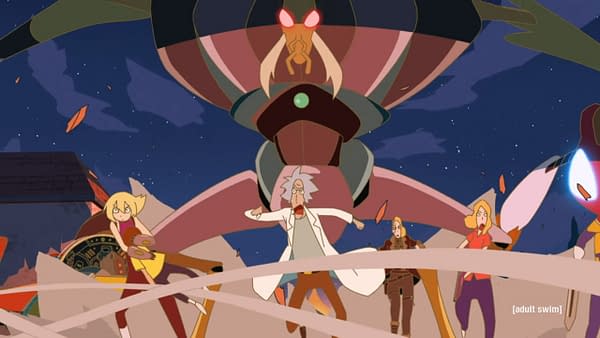
Takeshi Sano's Journey from Fan to Spin-Off Creator of 'Rick and Morty: The Anime
Bleeding Cool: What does playing in the world of 'Rick & Morty' allow you to do that you wouldn't normally do in your projects?
Sano: The one big difference is there are less people trying to stir the pot here, which was so new. It's also even rare for a lot of American shows, too, but for [Takashi], it was surprising to be given the keys to the door and then, other than some guidelines, he was free to do whatever. He was entrusted and told, "Do what you want to do" and that's rare to get. Also, the kind of materials or topics he was free to take on [compared to his other work is] rare or almost non-existent. It was completely new to him and that's what he appreciates that he got to play in the sandbox.
How long did it take to develop 'Rick & Morty: The Anime' after it was originally conceptualized as shorts and turned into a full series?
Chou: The shorts didn't necessarily connect to the series in the beginning. I don't think there's a thought on that so can I ask them about the series then?
Go ahead.
Sano: Pure physical timewise, it was forming a narrative about the whole ten-story arc that took about a month. Once he was able to put together the overall overarching plotline for the entire series, it was quick for him to start doing scripts and take on because he almost took on real-time. He took on the roles of plot, writing scripts, boarding, key art, and layout, all those wonderful things. Once he got that template, he was able to up and go.
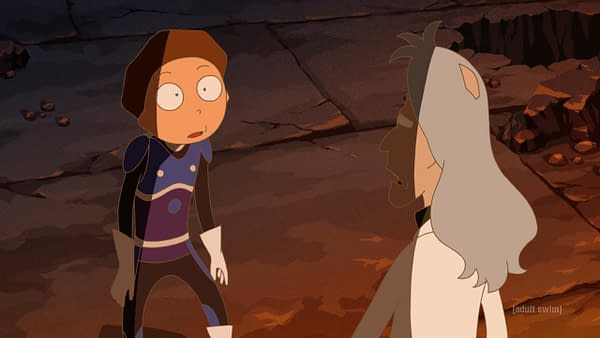
How did you want to distinguish yourself from your American counterpart? Are there some notes you wanted to make sure were yours versus what the American side was?
Sano: In the original, normally, the story ends in each episode. There's a beginning and an end in its episode. Since [Takashi] was given a chance for ten, he wanted the big story that encompasses an entire plotline that will run through every episode and complete the whole arc of the story. Even though this episode might be able to stand on its own, it would have a big story arc. That's a new approach he thought maybe he could bring to the table, a bigger story.
At the same time, this [anime] being filtered through Japanese eyes, there's the emotional reactions and how the characters interact with each other is different than the original show. Since it is being filtered through his idea of what an American family might be, he also intentionally also fused how those interactions will happen in an anime setting. That's something [Takashi] could bring to the table without trying to imitate what others do. That's what he thought could be different for this show, and that's what he aimed for.
The next question is more directed to you, Joseph. Was the original American cast considered for the English dub, or was it important to retain the cast from the shorts?
Chou: I don't think there ever was. It might have been discussed, but the thing is, [the anime] was standing on its own. We were also of the mindset of "Look, let's do something that stands alone and see if we can do it." Also, with the original show and creators, we made sure they were good with it and happy to give us their blessing and do our own thing. The only thing we were told because they're also quite busy producing their own shows was, "These are the themes we are we were doing, so let's make sure we don't cross, so we're not doing two different takes on the same thing."
It's sci-fi and a big sandbox, but we could be talking about the same thing, so let's try to avoid that. Other than that, they give us their blessing and let us do our thing and exist in a separate multiverse. That's what we were told, and we were given that freedom, which was great. Another thing is in terms of recording, we recorded Japanese first, and we dubbed it later. It wasn't the process like we recorded in America and then we met. We went through the traditional path of Japanese production, and then we dubbed afterward. It's anime, so we did that first. We haven't changed.
Were there any external inspirations driving the narrative and designs for this season aside from the original 'Rick & Morty'?
Sano: [Takashi] can't pinpoint because he has many influences. It's hard to pinpoint this one because it goes through probably everything he was influenced by, was digested, then turned into this thing, and it got infused with it because he was given a free hand, and he let it all out. One interesting thing he said was, "I read a lot of physics books, which is interesting." Now that you can make me think a little bit about how to handle some of these stories, and it's sci-fi, why not? Physics books [laughs].
New episodes of Rick and Morty: The Anime air on Fridays on Adult Swim and stream on Max.






